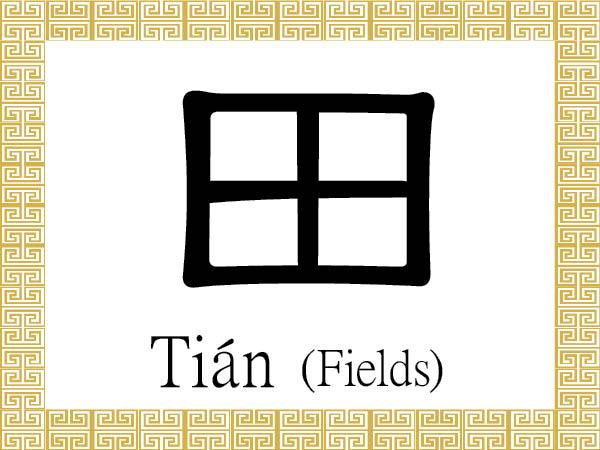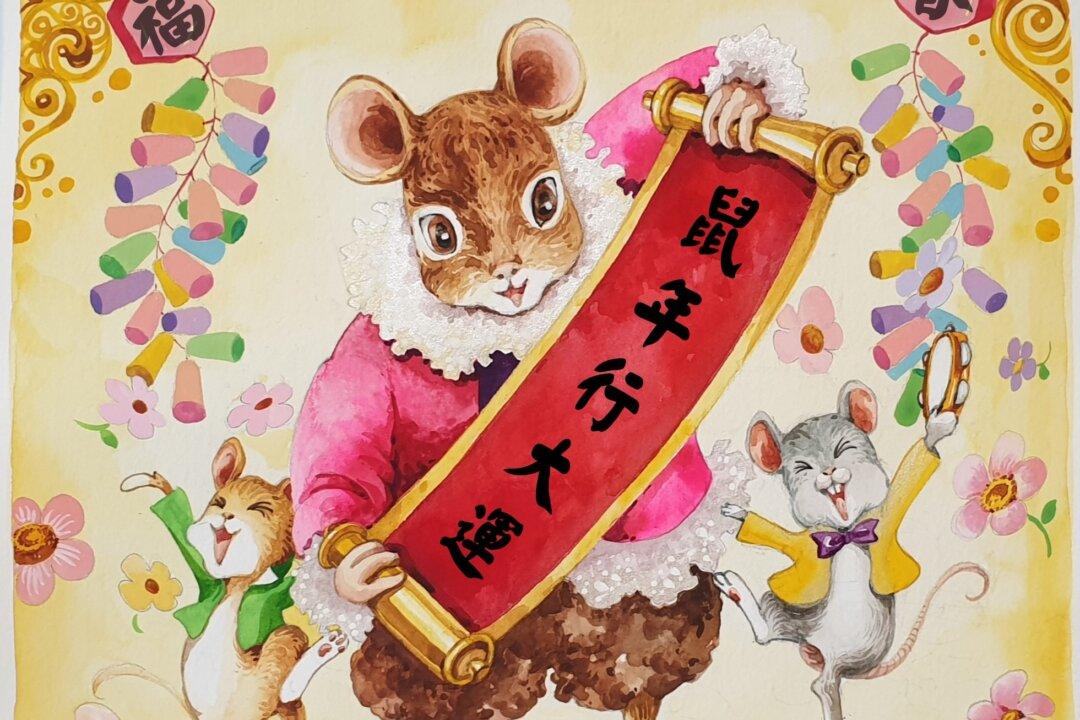The Chinese radical/character 田 (tián) stands for fields, arable land, or cultivated ground.
田 (tián) is a pictogram that depicts plots of cultivated farmland, with the two lines forming a 十 in the centre representing small paths between the fields.
Examples of terms that contain 田 (tián) include 田地 (tián dì), field or “farm land”; 田園 (tián yuán), the countryside or “fields and gardens”; 田舍 (tián shè), a farmhouse or “field residence”; and 田徑 (tián jìng), track and field (sports).
Pastoral poetry, a genre of poetry that idealizes rural life and landscapes, is called 田園詩 (tián yuán shī), or “fields and gardens poetry.”
Meanwhile, rural living is called 田園生活 (tián yuán shēng huó), or “fields and gardens” life or living (生活, shēng huó).
Rice paddies are called 水田 (shuǐ tián), literally “water fields,” depicting the flooded parcels of land that are used to cultivate rice.
心田 (xīn tián), literally “field of the heart,” describes the heart as one’s innermost being and the seat of one’s conscience and deepest thoughts and feelings.
耕田 (gēng tián) refers to plowing the fields or tilling the soil.
The phrase 筆耕硯田 (bǐ gēng yàn tián) depicts making a living by writing, using the pen or brush (筆, bǐ) and the ink stone (硯, yàn), just as a farmer earns his or her livelihood by working in the fields (耕田, gēng tián).
龍德在田 (lóng dé zài tián) conveys that the appearance of a dragon (龍, lóng) on earth, or literally “in the field (在田, zài tián),” symbolizes that a great being of majestic virtue (德, dé) has arrived, whose immense benevolence will benefit all of the world’s people.




